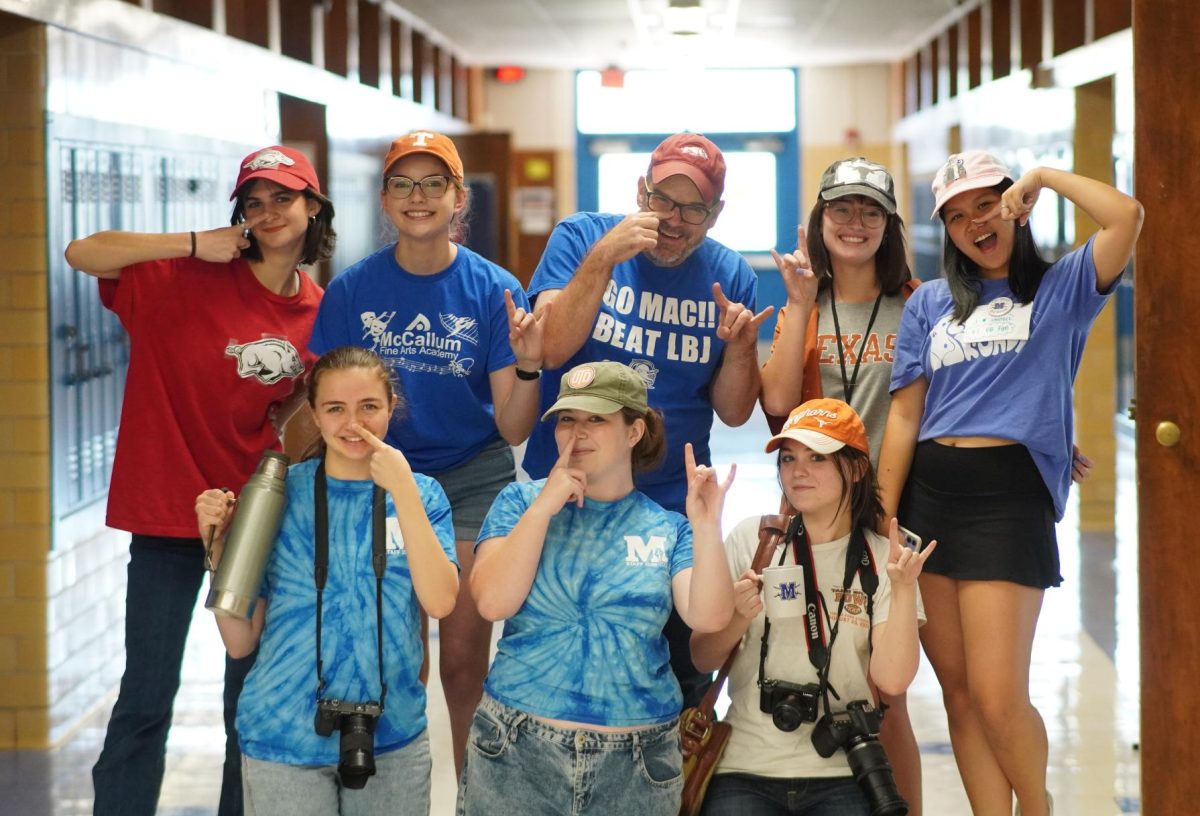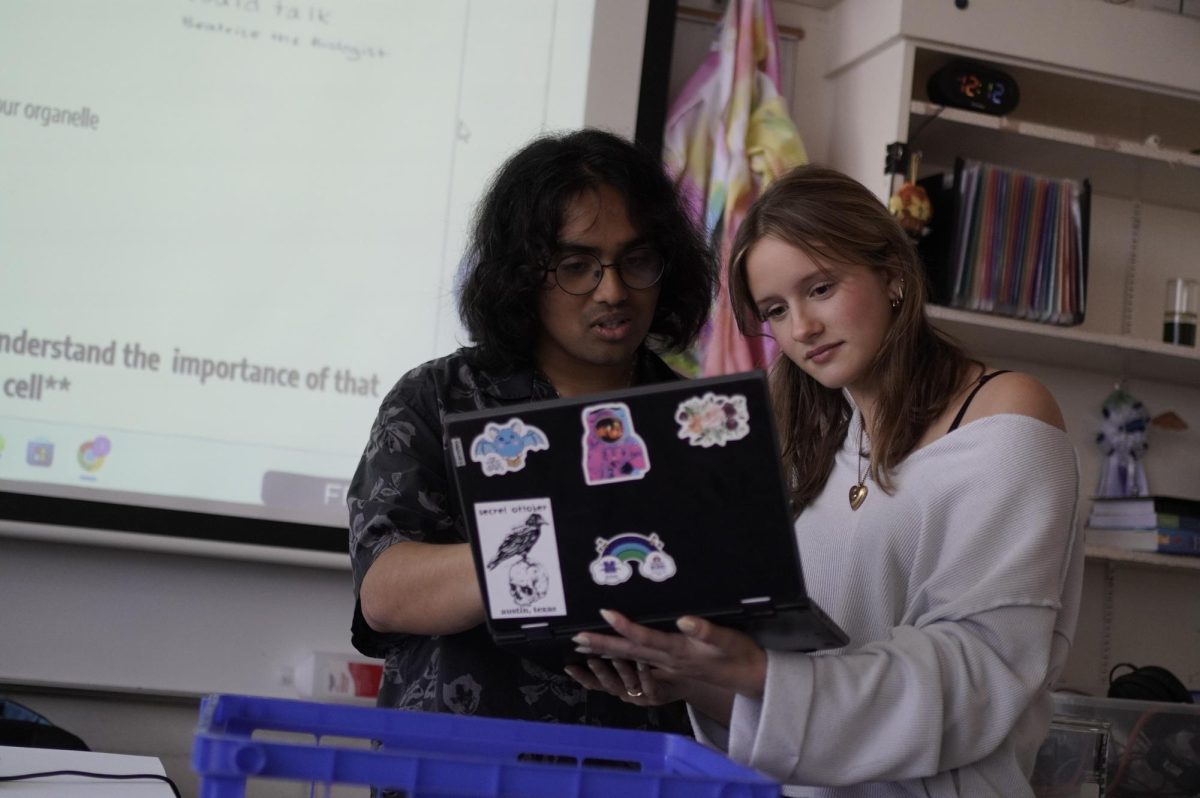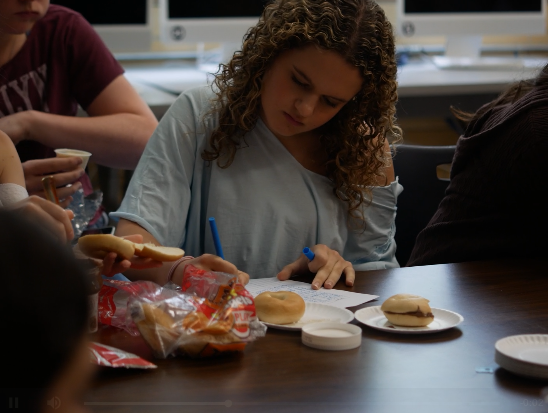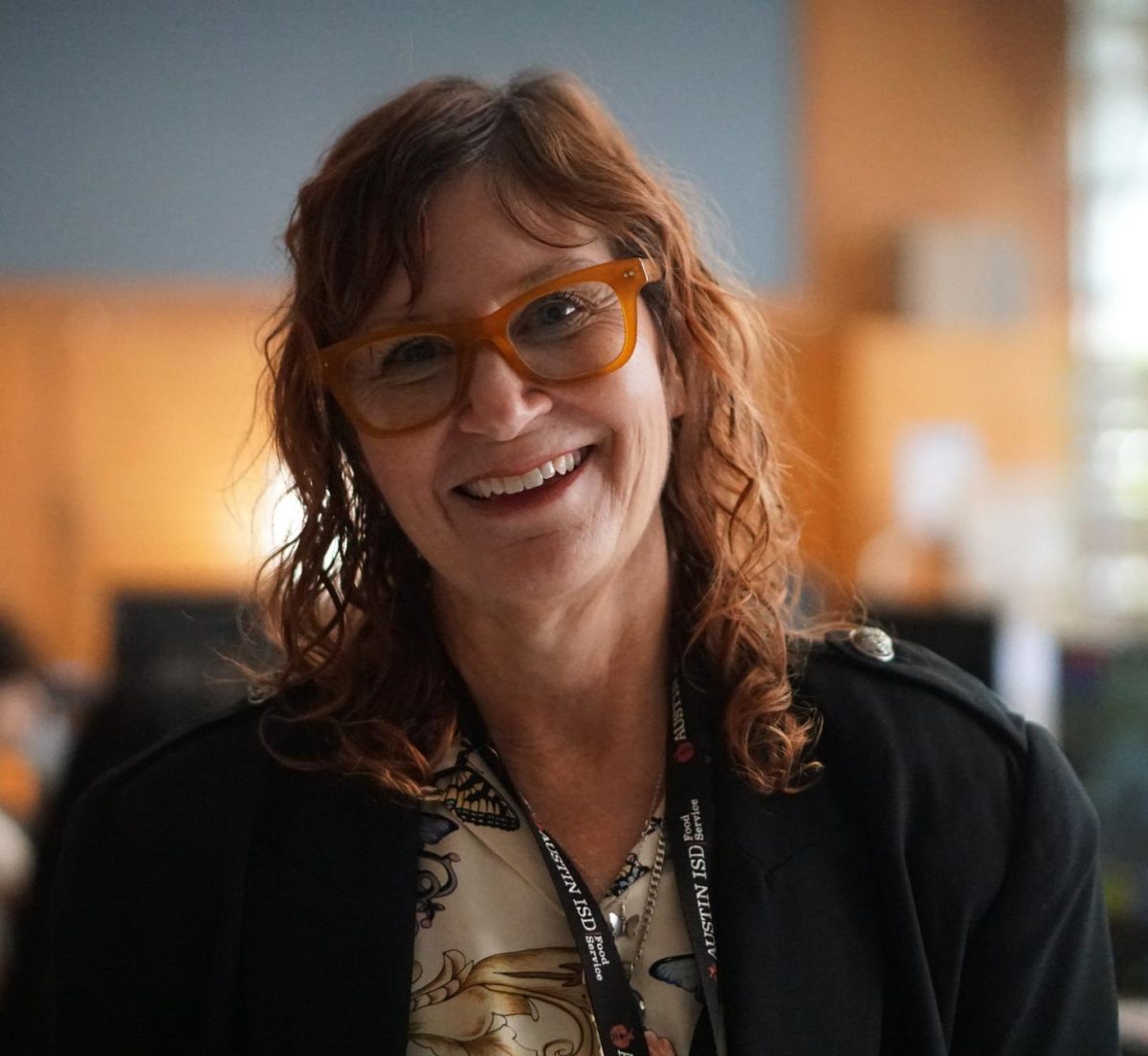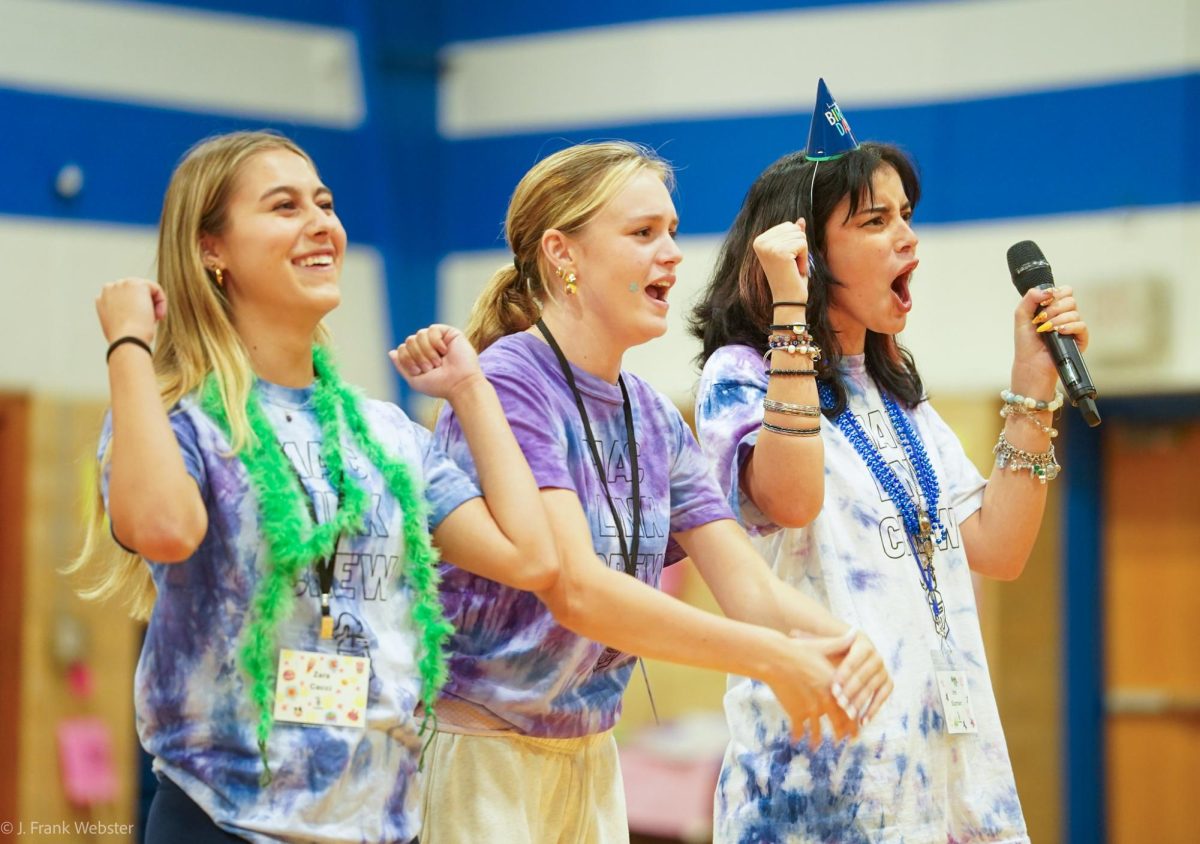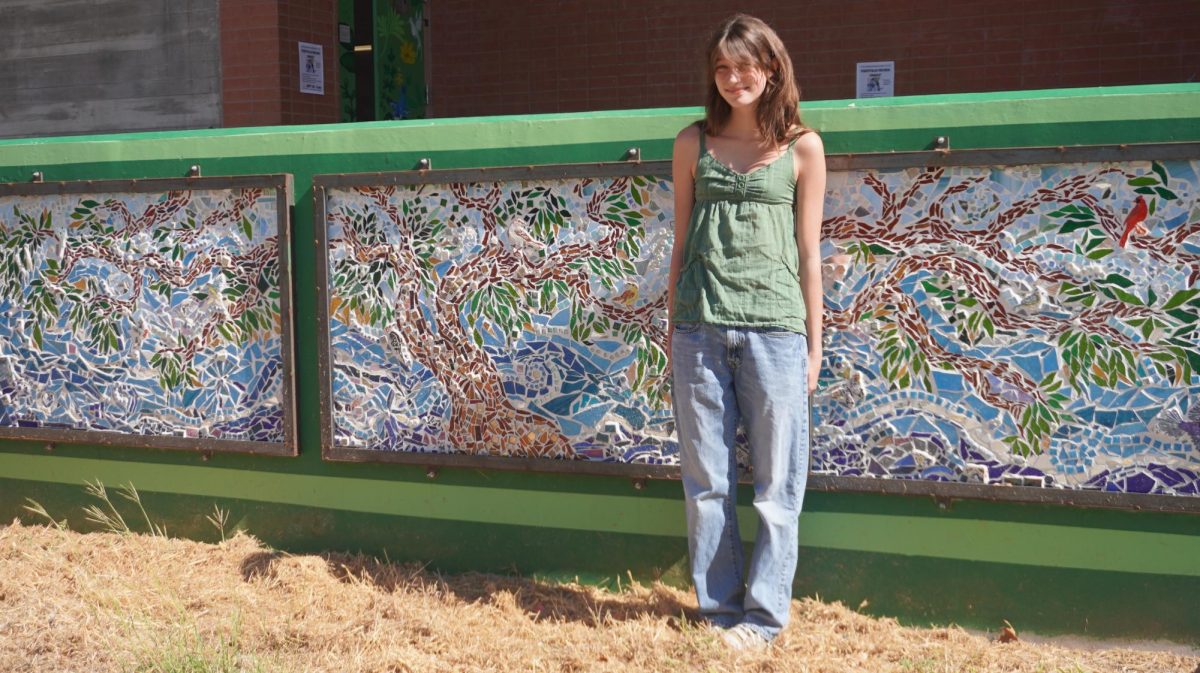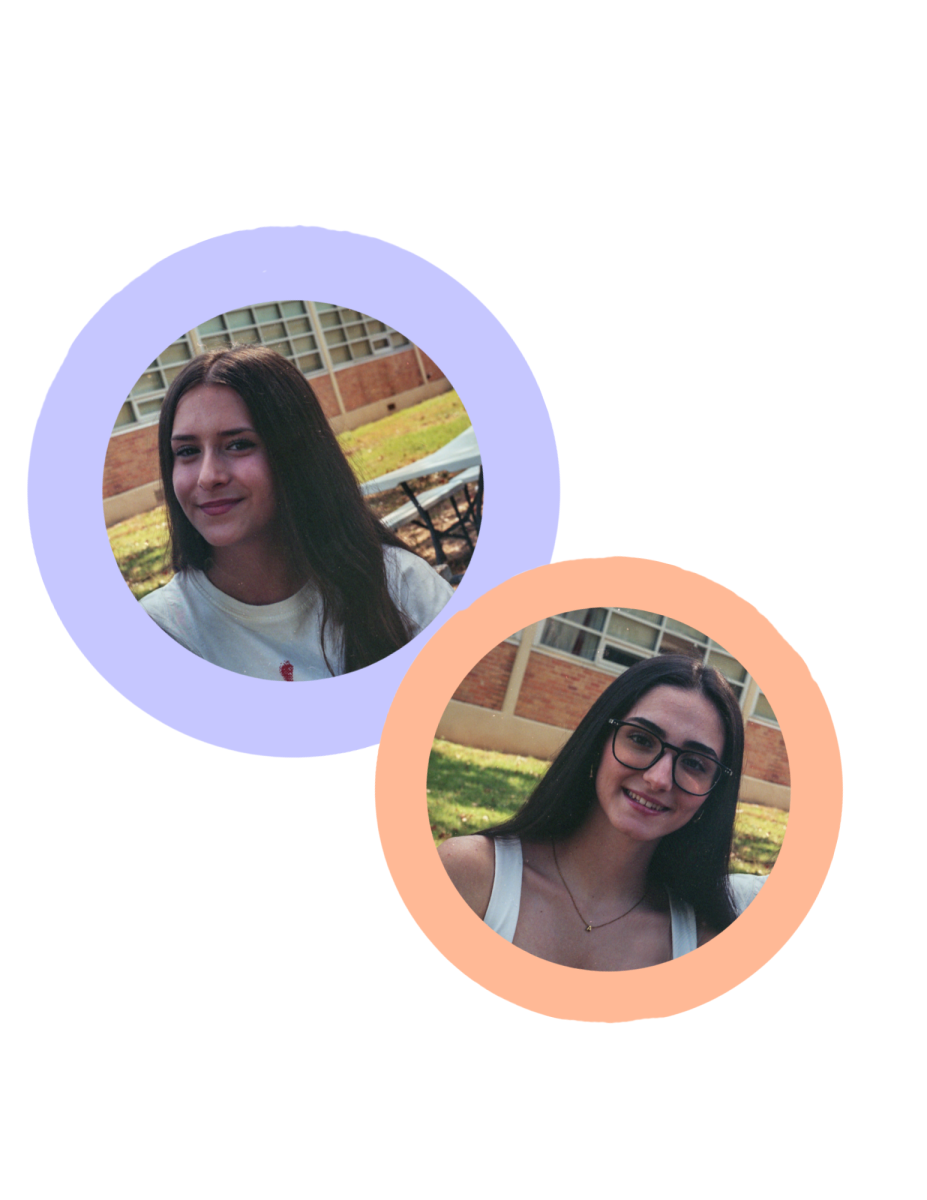Three years, 540 days, countless weekends, and persevering through the challenges.
These were the essential elements that brought the nine senior Shield editors together. From coming into the program as staff reporters and using every day to navigate the ropes of the school newspaper, to being the leaders of the staff, the senior editors worked collectively to achieve and to bring success to the program.
Their story, however, started three years ago. The collection of the nine senior editors of the Shield include Morgan Eye, Eliza Jensen, Caroline Owen, Sophie Leung-Lieu and Naomi Di-Capua. Additionally, Francie Wilhelm, Alice Scott, Lanie Sepheri and Ingrid Smith are the four co-editors-in-chief.
Wilhelm, Sepheri, and Smith joined the newspaper their sophomore year looking for a way to use their love of writing and search for a connection to the community.
“All the social aspects of journalism have been very transformative for me,” Wilhelm said. “I’m a much more confident person. I like talking to people, and as a leader, all this stuff I’ve done junior and senior year would not have been possible if I wasn’t a journalist.”
Scott joined The Shield her freshman year coming in with a background knowledge of journalism from middle school. Even before high school, she knew journalism was something she wanted to pursue all four years of high school.
“When I first joined, I didn’t see the bigger picture of what we were doing,” Scott said. “As I’ve come throughout the program these past four years, I started to find the benefits in thinking big picture and being a leader and an editor, and all of the value in that aspect of journalism.”
While the editors came in on separate paths, the group of four found friendship, resilience, and a myriad of shared skills forged through their senior year and the commitment of being co-editor in chiefs.
“It’s not a fine art, it’s not the same as other academic things, so it’s nice to have those people that just get it,” Scott said. “And it’s nice to have that many talented and incredible people that we’ve [had and] been able to collaborate with for three years as staffers and as editors.”
Reflecting upon the lessons that newspaper journalism taught her and the people it brought her closer to, Wilhelm said even the tougher moments were worth it in the long run.
“Even when it’s hard or it’s tiring or overwhelming, being involved in McCallum Journalism opened up to so many new experiences,” Wilhelm said. “As EICs, we’re in charge, and it’s nice when it can be all four of us together. It’s a united front.”
This united front is largely how the editors-in-chief found their rhythm, routine and schedule in the daily newspaper class, Sepehri noted.
“One of the things I love most about newspaper is the people who do it,” Sepheri said. “I was friends with a lot of these girls before we did newspaper, but being in it together has made our friendship so much stronger, and gotten us to be closer.”
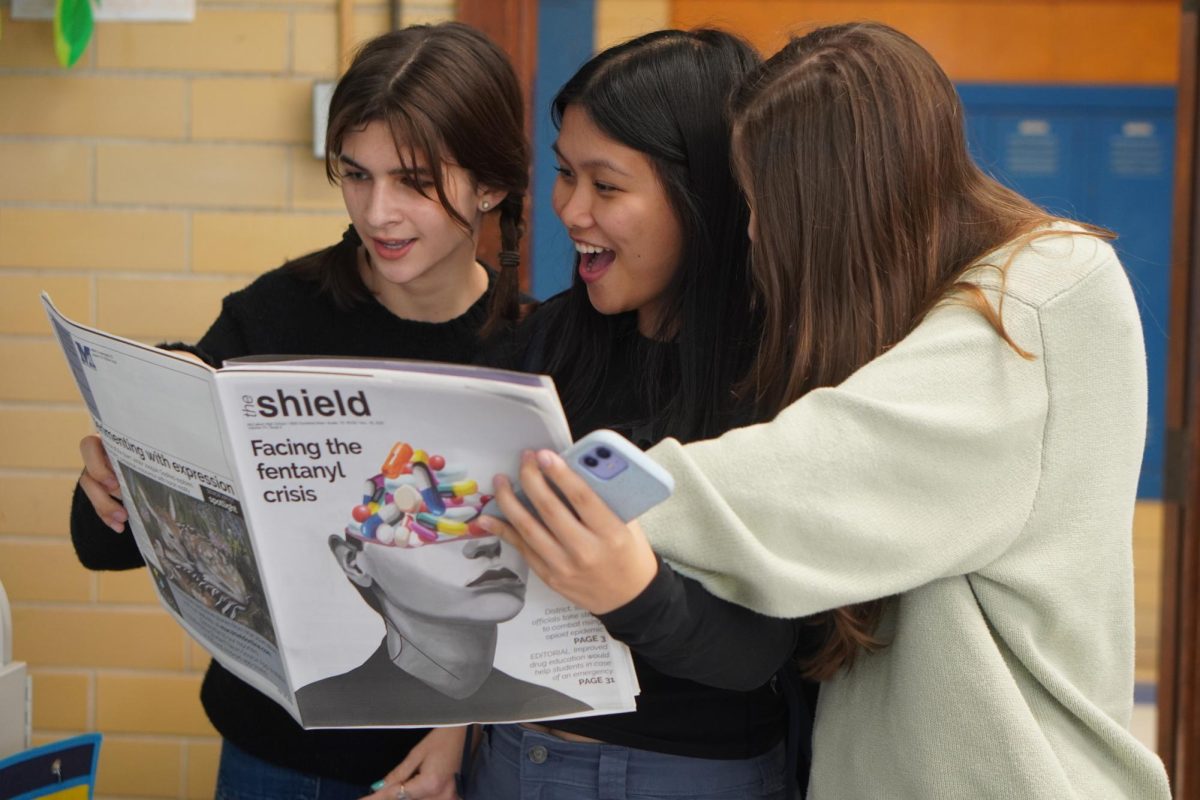
Through the process of learning how to manage a tough job and learning how to be leaders in the class, the friendship of the senior editors has grown.
“It’s such a huge part of my life,” Wilhelm said. “You know, the EIC group chat is pinned on my phone. I’m always in 134. If I don’t have lunch plans, I go to 134 to work on something, and I’m always there for FIT.”
For the past three years, Room 134 has become the home base for all things newspaper and has provided a haven for learning and communication according to Smith.
“I’m going to miss being in a room where people are committed to raising the voices of people in our community here at school,” Smith said. “I’m glad that it’s been my anchor. It’s led me to so many different things that I never thought I would do.”
Connecting with staffers
For the editors-in-chief, connecting to staffers was something the senior leaders of the Shield worked to improve on this year.
“Staffers are committed to talking to people and telling or asking them about the things that they love,” Smith said. “It’s been my goal to talk to every single person on staff and make sure that they understand what they’re supposed to be doing and provide assistance as best as I can.”
Whether a section editor, managing editor, or editor-in-chief, the seniors all had different roles in ensuring the paper would come out seamlessly and that came with always providing a helping hand. Design and visuals editor Sophie Leung-Lieu’s role focused mostly on the print newspaper; however with her skill set, she was able to help out across all Shield platforms, and those around her could provide that same helping hand back.
“If I’m ever stuck on something, I know who to talk to, and I’m going to miss that,” Leung-Lieu said. “I think we’ve gotten to a really good rhythm of helping each other out when we need it and have that solid foundation of help.”
While the staff consists of a multitude of different editors ranging in positions, Di-Capua said that the person who keeps everyone steady and has been responsible for a lot of the success in the newsroom is adviser Dave Winter.
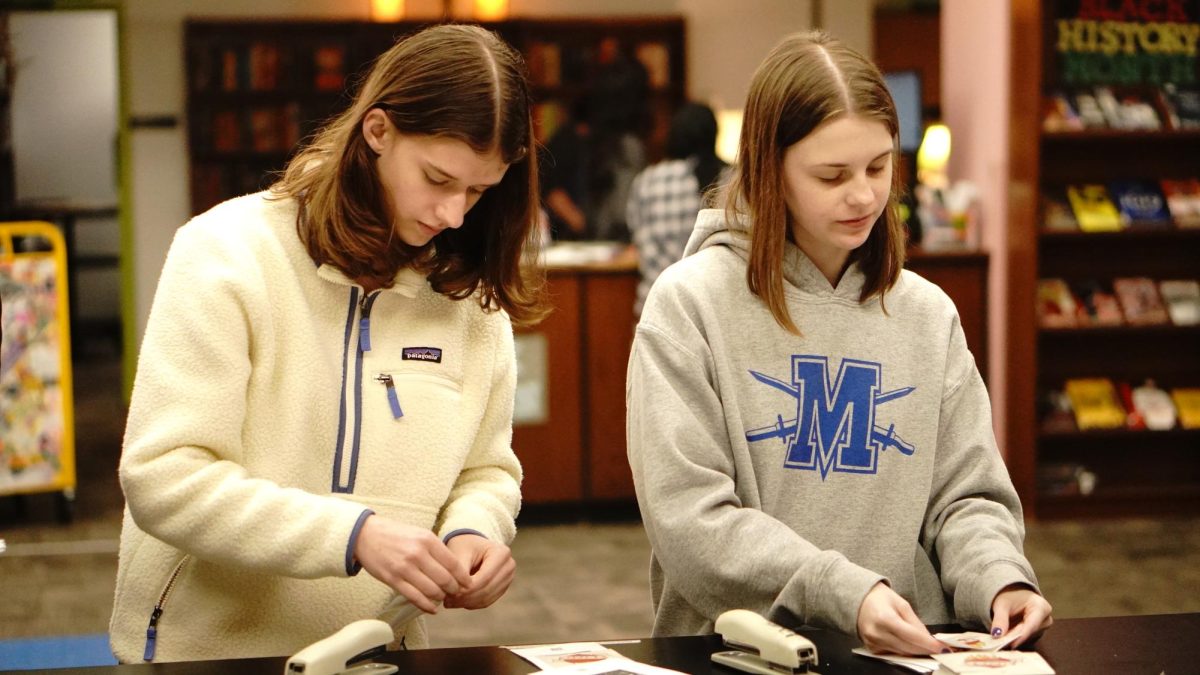
“A pretty big majority of us walk into the program with absolutely little to no journalistic experience,” Di-Capua said. “To be blessed with a sturdy adviser who is consistently there and is as amazing and patient and as talented of a journalist as Mr. Winter is the best gift a student could ask for.”
Despite the senior editors having a wide variety of different roles within the staff, each learned valuable lessons from their time as staffers, editors and leaders. For print managing editor Caroline Owen, one such lesson was efficiency.
“I learned that you should try to manage your time wisely,” Owen said. “Every year at the end of the year, we can look back at all the issues we’ve done and feel good about the work.”
The role has additionally allowed the editors to learn more about the responsibilities of journalists, Di-Capua said.
“If you mess up, it’s on you,” Di-Capua said. “So really learning how to balance what you need and learning to be accountable when you mess up is something I’ve learned on staff.”
While the shift from staffer to editor can be rocky, once the editors find their proper footing, the connection with staffers makes all the difference, Owen said.
“When you try to teach a younger staffer, level with them and talk to them as equals,” Owen said. “Not editor to staffer but person to person.”
All in this together
Developing this cohesive relationship between staffers and editors is just a part of the leader’s role. Each with a different role in the paper’s issue cycle, the editors had to learn to collaborate to achieve collective success.
“What’s so special and so difficult about newspaper is that we all have to work together to make a finished product,” Sepheri said. “Everyone else has their part, and we all have to get there together to do it. I’ve learned how to manage my role and work in relation to other people.”
In addition to the daily learning opportunities, the senior co-editors-in-chief note the moments that brought them together on the job.
“The editors-in-chiefs are connected,” Wilhelm said. “I think we are all just brought together by this very unique extracurricular.”
From the Texas Association of Journalism Educators Fall Fiesta journalism convention in San Antonio to UIL district, region and state competitions to coverage of sporting events, the moments the editors shared have all contributed to building their close bond.
“Staying up and working on pages at Fall Fiesta [brought us together],” Sepheri said. “We spilled coffee in the bathroom all over the floor, and had to clean it up at like four in the morning, and things like that have just made it so much fun.”
According to Scott, the unique moments outside of class allowed the editors to run a smooth class and work efficiently in Room 134.
“There were intense moments when we were trying to finish the issue [at Fall Fiesta],” Scott said. “But I think it was also really nice because that was our first issue this year, and we all got to be together to work on it and that hasn’t necessarily been how it’s gone for every issue.”
Experiences like these conventions proved why being an editor was worth it, and without proper communication, the job wouldn’t function. For news editor Morgan Eye, it additionally allowed staff bonding moments alongside improving skills in the journalism world.
“Some of my greatest memories are traveling with the journalism team to different conventions like SXSW EDU or when we did the weekend at the University of Texas and did courses together there,” Eye said. “It [allowed me] to work with my team outside of the classroom and has built our connection and made us a better staff, and I feel more motivated to pursue journalism when I’m with my fellow editors.”
The moments and memories that came with being an editor additionally created stepping stones to look back on that got each editor to where they are, Owen said.
“One of my proudest moments was covering Taco Shack last year,” Owens said. “I made many mistakes but at the end of the day, we got the post out and worked hard.”
What being an editor means
What being an editor means to each of the seniors has come from different perspectives and experiences throughout the years. For Eye the community was a big part of what pushed them to become a better writer and journalist.
“Being an editor has taught me how to talk to people I normally wouldn’t work with.” Eye said. “I have met people that I embrace now as my journalism family and leadership skills have shown through and teaching, which I have come to love the most.”
The editors-in-chief are responsible for a large part of the final editing process. Producing a full paper takes multiple sets of eyes, several rounds of edits and revision. The EICs are responsible for the final rounds of this process, as well as picking the stories that will make it into each issue.
“I think a lot of the work I do is a lot more big-picture work,” Scott said. “And does that mean I write fewer stories sometimes? Sure. But I think there’s a lot to be said for leading a program and trying to leave it better than you found it.”
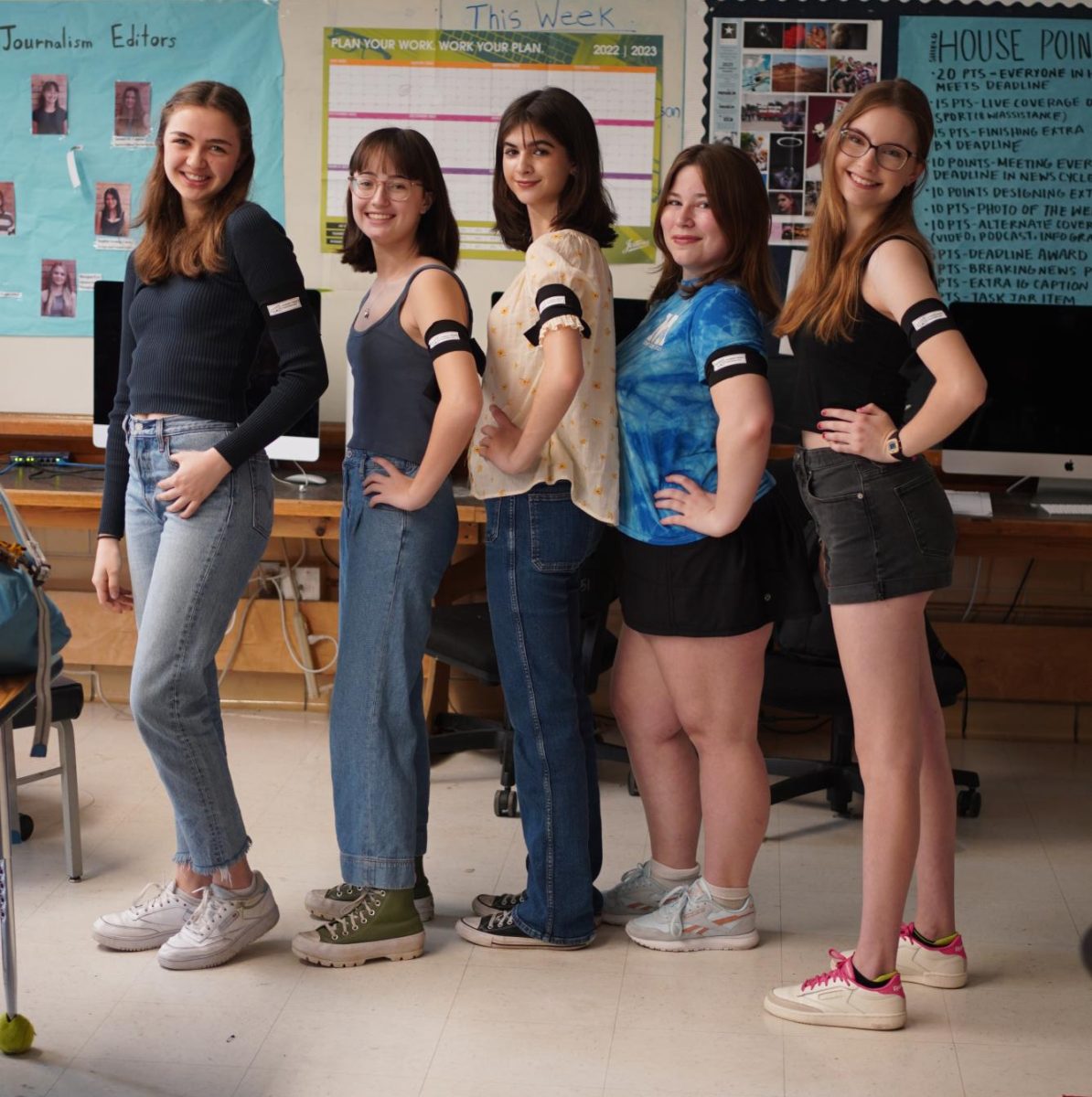
The section editors are responsible for the edits on stories, and for preparing them for further edits, design and eventually publication. For A&E editor Eliza Jensen, this process has been a learning experience for the past two years of being an editor.
“I have to reach out to a lot of people to make sure they’re getting their work done and also just be patient,” Jensen said.
The senior managing editors each take roles within different realms of newspapers and provide the outreach of news and information from different platforms. For Di-Capua, managing social media allowed her to translate a part of journalism she connected with into her managing role.
“It wasn’t a position until my junior year,” Di-Capua said. “I walked into my editor interview my junior year and was like, ‘This is what I want. I know it’s not a thing, but let’s make it a thing,’ which also meant that I had to take a lot of time to like, learn how to define that role.”
Social media serves as one of the main information platforms for the McCallum community, providing both challenges and fulfillment for Di-Capua.
“I think that there’s still so much work that can be done in the position,” Di-Capua said. “But I’ve managed to find a pretty good balance.”
For Leung-Lieu, the role as design editor formed similarly.
“When I first came into the staff I wanted to do a lot of writing,” Leung-Lieu said. “The whole reason I wanted to do that was because I wanted to get better at writing. I realized that wasn’t exactly my strong suit, but Mr. Winter pushed me to be a design person, and I embraced the role and ended up loving it.”
Finding her role motivated Leung Lieu to continue putting her best foot forward while working and taught her valuable leadership lessons.
“I don’t think I would have made it through the past four years without that community,” Leung Lieu said. “Watching everyone grow and seeing everyone else grow, it’s amazing to see all these people become leaders.”
The rewards of newspaper work
While the editors collectively have had to work through the highs and lows of producing each issue, the reward of holding the paper full of everyone’s stories makes it worth it according to Scott.
“Having all of these people that I was able to rely on has made this year run so smoothly,” Scott said. “You know we have our new junior editors, and obviously they’re great, but some of our specialized editors have been doing this for two years and so they have gotten good at it. And I think that just allows there to be a lot of trust.”
From midnight coffee runs to daily class discussions, the senior editors say the three years they have spent together have built bonds that will last a lifetime.
“Just being at the editor’s table with my co-editors and working out problems has been my favorite,” Di-Capua said. “It’s a lot of really rewarding work, but it’s a lot of work, and you can’t do it without a support system.”
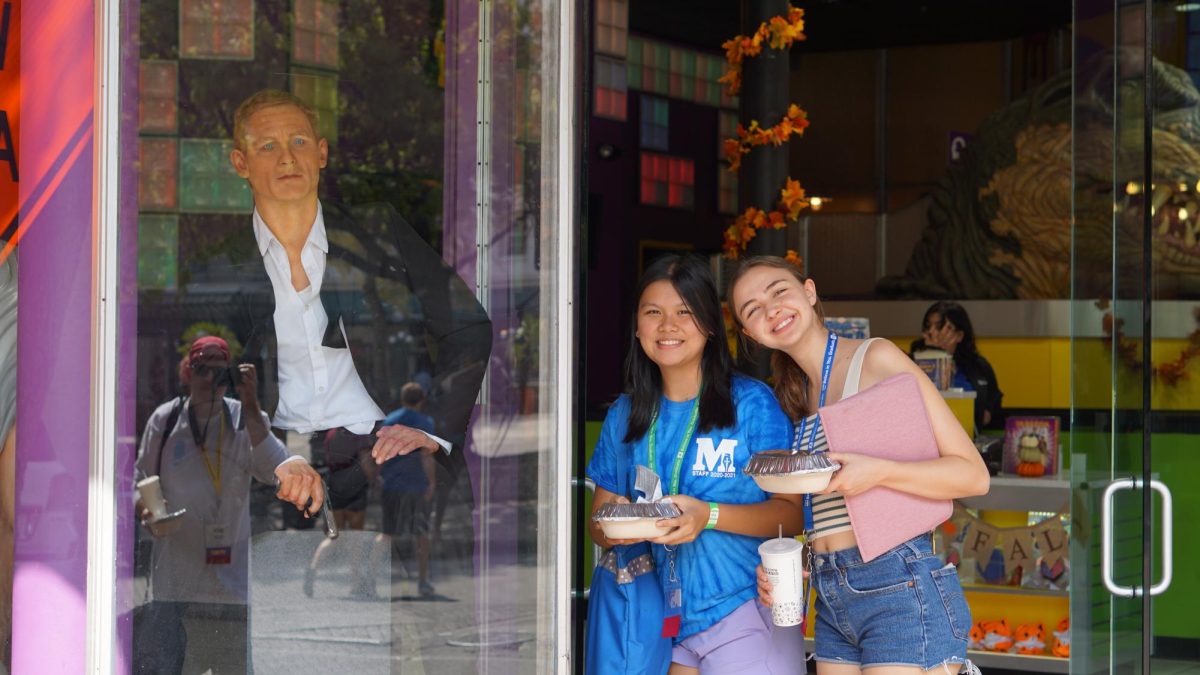
While for some of the senior editors, their experience in journalism ends in high school, for others, such as Scott, continuing journalism in college played a major factor in deciding their future path.
“I learned about design, and I learned about podcasts, and so I think that [my time on the Shield] is really what has sparked my love for journalism, and it’s the reason I want to go on and do journalism in college and beyond,” Scott said. “There are so many different ways that you can tell stories and ways you can engage an audience.”
Scott, Smith and Eye all plan to continue studying journalism in college.
“The social media aspect set me up with some good skills that I am going to take with me into the future,” Eye said. “How to check engagement, see what works and doesn’t work in terms of your audience, that’s a really good life skill I can take into the workforce.”
Eye said that getting to work with print and social media allowed her to take away multiple skill sets.
“From news editing, I am a few steps ahead of the game than other people are for college,” Eye said. “I know AP style, I know how to integrate quotes correctly and skills you gain from writing carry over a lot and have set me up well.”
Not all the senior editors plan to pursue journalism as a professional career. Jensen, for example, plans to major in environmental science. While journalism is not in Jensen’s future, she said the experience has helped her prepare for the future.
“I have learned patience and communicating with people I’m not used to talking to,” Jensen said. “I still remember the first review I wrote for my section, and I was proud of that and my work ethic with it.”
For Leung-Lieu, experiences gained in 134 shaped a large part of her high school life and have helped her be ready for the challenge that college poses.
“The work ethic and the things you have to discipline yourself to do in newspaper, I will take with me to college,” Leung Lieu said. “Being able to interact with people and teach them how to do things is a really important skill that I wouldn’t have without newspaper.”
Consuming their life in a good way
While the newspaper at McCallum has required its editors to commit a significant amount of time and effort to the program, each story and issue being published as well as the community surrounding it has made that worth it.
“Newspaper is something I have been so deeply involved in for so long and there’s definitely moments where it’s very difficult and very draining but it’s been such a rewarding experience,” Wilhelm said. “I have met some of my best friends through the newspaper and it’s crazy to me that I’m not going to have that huge part of my life in my life anymore.”
The diversity of experience that newspaper has offered these seniors over the past four years has been rewarding, Di-Capua said.
“Newspaper is such a diverse field because you have people who take photos, you have people who write, you have people who use video, you have people who edit and design, and I think that’s what drew me there,” Di-Capua said.
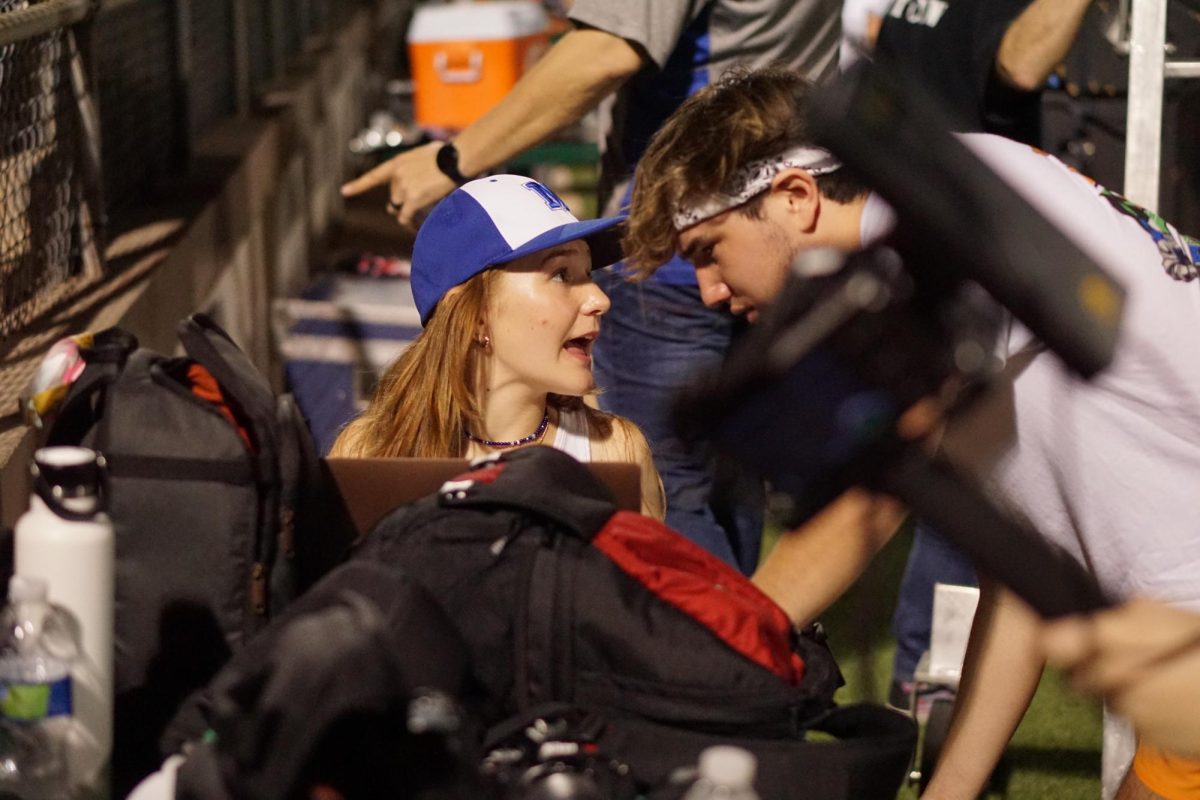
Each little moment and a big step for the editors as well as everything in between has formed the senior MacJ experience.
“I have memories that I’ll just really like treasure for so long, that I would not have been able to make if I wasn’t in journalism,” Wilhelm said. “So it does make me a little sad to know that even if I continue student journalism in college, it will not be the same that it has been for so many years.”
In the end, the friendships formed through the Shield allowed the senior editors to come together for one final year and do their part to make the Shield the best it could be.
“I’m grateful that I got to experience McCallum through the world of Mac Journalism,” Scott said. “I think this program consumes your life in a good way, and it’ll be weird not to have that.”
—with reporting by Kyan Adams, Tristen Diaz and Callen Romell


